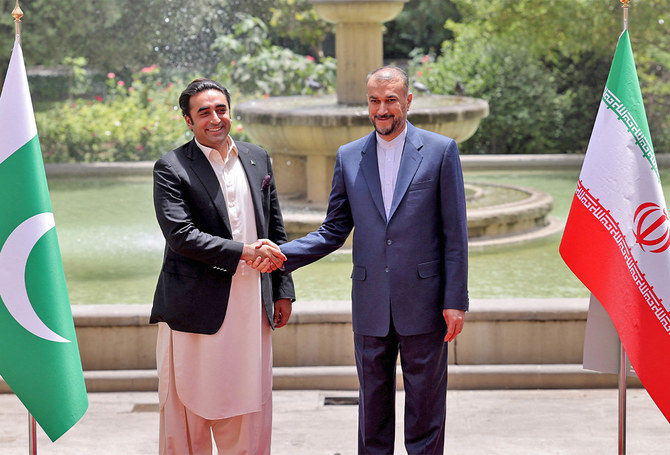ISLAMABAD: Pakistan and Iran on Tuesday operationalized a barter trade mechanism between the two countries, the Pakistani foreign office said, eyeing trade expansion through new border crossings and marketplaces.
The development came after a meeting between Pakistani Foreign Minister Bilawal Bhutto-Zardari and his Iranian counterpart Hossein Amir-Abdollahian during the former’s maiden visit to Iran. Bhutto-Zardari arrived in Tehran on a two-day visit on Tuesday.
Pakistan and Iran share a common border, however, the administration in Tehran faces international sanctions, making it difficult for other countries to pursue commercial relations with it. Last year in November, Pakistan and Iran held the 9th Joint Trade Committee meeting in which business leaders from the two countries discussed the idea of striking a barter deal.
In April, the Pakistani Ministry of Trade issued a notification to lay down the procedure for barter trade between the two countries, with officials expecting the move to increase the bilateral trade from the existing $1 billion to $5 billion.
“I am glad that we have come closer to resolving one of the major obstacles in expansion of bilateral trade through operationalizing barter trade mechanism,” a joint press stakeout quoted Bhutto-Zardari as saying after his meeting with the Iranian foreign minister.
“Formalization of cross-border exchanges through opening of new border crossings and promotion of trade through border marketplaces are measures of our shared commitment to provide opportunities for enhanced economic and commercial activities.”
The Pakistani foreign minister said the measures would greatly help improve the livelihood and welfare of people in the border areas of both countries.
Both figures also discussed energy cooperation through the import of additional electricity from Iran, the possibility of exchange of prisoners to allow them to complete sentences in their respective countries as well as the latest developments in Afghanistan.
During his visit, FM Bhutto-Zardari will also interact with Iranian President Ebrahim Raisi and other senior administration officials.
















